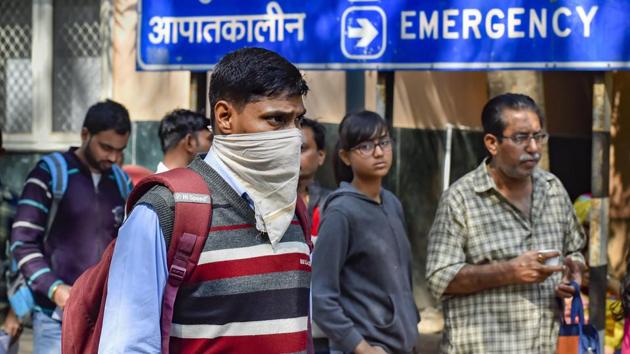How India must fight coronavirus | HT Editorial
Be transparent, spread awareness, and equip hospitals.
India must rapidly escalate preparedness in anticipation of a cluster of infection after two new novel coronavirus (Covid-19) cases, one each in Delhi and Hyderabad, were confirmed. Both individuals interacted unprotected with their families, friends, colleagues and their children’s classmates. The highly contagious Sars-CoV-2 virus, which causes Covid-19, is primarily transmitted through respiratory droplets from, and from close contact with, infected persons. With both new cases developing symptoms several days after getting infected in Italy and Dubai, the chances of their having inadvertently infected many others are high.

With a long incubation period of 14 days and a high ability to survive in the environment, the virus is far more dangerous than flu viruses such as H1N1, which survive on surfaces for two to eight hours. Infected people spread the disease even when they themselves don’t have symptoms (fever, cough, breathing difficulties), or have a very mild form of the disease, or develop symptoms late in disease progression. This means that airports screening passengers from affected countries can at best delay, not stop, the spread of infection.
In a move reminiscent of China’s secrecy and delay in reporting the Cobvid-19 outbreak, India’s ministry of health and family welfare has banned hospital staff and health workers tasked with diagnosing and treating Covid-19 from speaking about the disease in a misplaced effort to stop panic. It should, instead, become uber transparent and share information to empower people to protect themselves. Secrecy fuels conspiracy theories and drives panic. This is counterproductive to containing escalating outbreaks that need trust and active public participation in prevention, particularly through home quarantine, regular hand washing and cough hygiene. Public awareness, active surveillance for early detection and isolation of cases, rapid identification and daily monitoring of close contacts, and clinical care have helped India isolate and cure three imported cases of Covid-19 in students in Kerala. Now, with community transmission of the infection very likely, clusters are likely to be reported. India must also rapidly increase its operational labs for rapid diagnosis, equip hospitals, and train medical staff for isolation and treatment of those infected.






